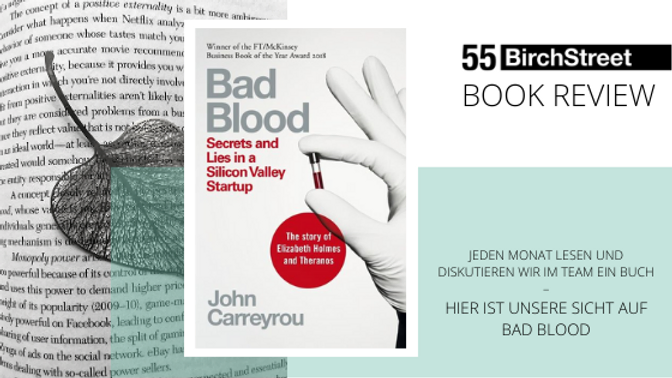
There was a gold rush in Silicon Valley in 2004. Start-ups are springing up, all with the hope of making big money, such as Google & Co., including the young, charismatic 19-year-old college dropout Elisabeth Holmes, who, with her start-up, has set herself the goal of becoming a billionaire under all circumstances. Bad Blood is an insider story of the breathtaking rise and collapse of Theranos, the multi-billion dollar biotech startup.
In 2004, Elisabeth Holmes founded her company Theranos, with the promise of revolutionizing the medical industry. She invents a pocket-sized machine that should make blood tests significantly faster and easier. At times, Therano's shares were valued at more than 9 billion dollars and Holmes became the world's youngest self-made billionaire. There was just one problem: The technology never worked. The alleged success story became one of the biggest cases of fraud that Silicon Valley has ever experienced.
Elisabeth Holmes' charisma captivated people - just like her appearance, which was always part of public discussion. The big eyes, the blond hair, the black sweaters and her remarkably deep voice. Powerful and wealthy old men in particular believed in Holmes' success. The supervisory board included US statesman Henry Kissinger, former Secretary of State George Shultz and General James Mattis, former Secretary of Defense under US President Donald Trump. Even media mogul Rupert Murdoch invested.
How could it happen that “experienced” investors fell for a young woman and her perfidious intrigues? Mind you, we're not talking about a crime novel here, but about reality. One reason is investors' fear that they can which miss out on a big opportunity, known as a “fear of missing out.” Another reason is certainly the way the company was run: Elisabeth Holmes has exhausted the motto “Fake it till you make it” to the extreme and promoted lack of transparency and monitoring within the company by ensuring that each department worked for itself in isolation, without knowledge of what was happening in other areas. She concealed from investors the fact that the product was never ready for use. That was easy for them to explain, because that would be like asking Coca-Cola to reveal their recipe before investing in the company. Instead, with her powers of persuasion and sales talent, she has wrapped up even seasoned businessmen around her finger.
Even though Carreyrou is reluctant to draw conclusions about the Therano case, the book can also be read as a warning about the prevailing culture in venture capital, in which greed plays no insignificant role. It is becoming increasingly difficult for investors to understand the technologies of the start-ups (such as artificial intelligence or blockchains) in which they invest. Holmes has cleverly used this by focusing exclusively on investors from outside the industry and deliberately omitting experts from the medical and healthcare industries. You might think that the Theranos case is an isolated case. That is certainly true in this version, but there are other cases in history, such as Enron or the German company Flowtex. Its managing director Manfred “Big Manni” Schmieder had sold more than 3,000 non-existent special drilling machines for tunnel construction in the 1990s, causing damage of almost 2 billion euros. Here, too, everything started on a small scale and at some point the point of confessing all the lies and tricks was crossed. The question that you can ask yourself in principle is where the limits to “alternative facts” are. When does embellishment become marketing and marketing becomes fraud? Everyone is in demand here and should never tire of reflecting on their personal actions.
What will happen for Elizabeth Holmes after the scandal became known is still in the stars, she is currently awaiting her trial, which is due to begin on August 20 this year.
John Carreyrou is a French-American journalist. From 1999 to 2019, he worked for the Wall Street Journal and worked in Brussels, Paris and New York City. He won the Pulitzer Prize twice before he researched the Theranos case and revealed the billion-dollar company and its founder as a fraudster with a series of articles in the Wall Street Journal.
# Theranos founder Elizabeth Holmes to stand trial in 2020
# Rise and fall in Silicon Valley
# Bad Blood: Secrets and Lies in a Silicon Valley Startup
# Bad Blood. The true story of Silicon Valley's biggest scam.
# “Elizabeth Holmes wanted to be a female Steve Jobs”
Do you have a question or would you like to find out how we can work together?
Feel free to contact us here or via linkedin with us — we'd love to hear from you